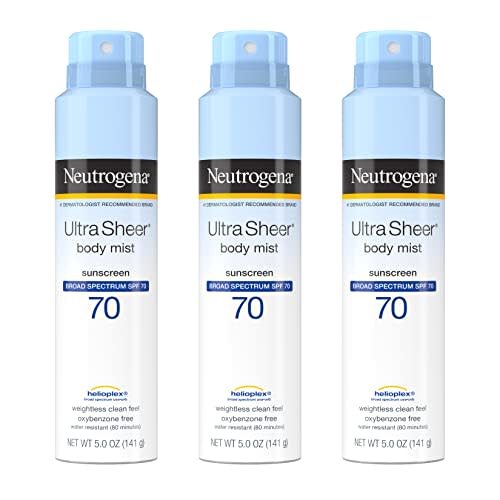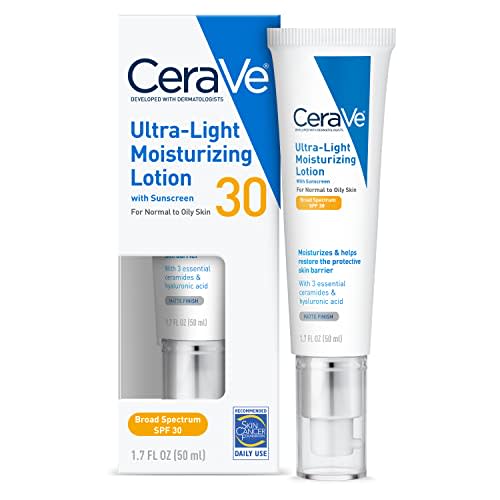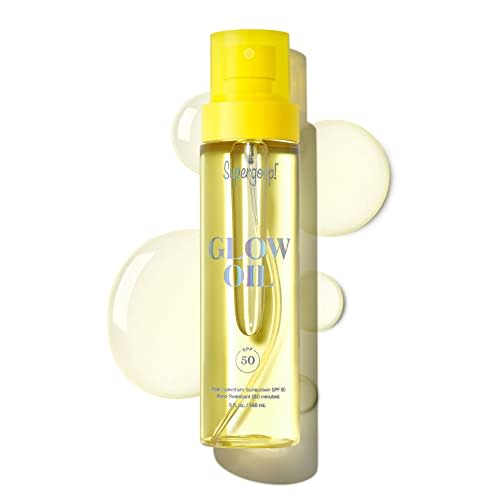It’s Important To Protect the Skin You’re In!
We're breaking down the easiest and best ways to protect your skin.
Parade.com has an extensive editorial partnership with Cleveland Clinic, consistently named as one of the nation's best hospitals in U.S. News & World Report's annual "America's Best Hospitals" survey. Click here to learn more about our health reporting policies.
Daily sunblock use is a skincare must, plain and simple—after all, it’s your strongest line of defense against skin cancer and premature signs of aging, like wrinkles and dark spots. But the sunscreen aisle can be overwhelming, especially if you don’t know what you’re looking for. With all of those brightly colored bottles of all shapes and sizes vying for your attention (and wallet), it’s important to know which sunscreen brands will provide the best sun protection while also meeting your skin’s unique needs.
What is the best sunscreen for me?
Since there are so many options, the best sunscreen for you is the one that you will use correctly and consistently every day. But there are a few cardinal guidelines when choosing a sunscreen from the shelf, according to the American Academy of Dermatologists (AAD). That's why we scoured thousands of sun-loving user reviews to find the best-selling, top-rated sunscreen brands of 2022 that also meet the AAD’s important recommendations for sun protection.
According to Dr. Jennifer Lucas, a board-certified dermatologist and dermatologic surgeon with the Cleveland Clinic, you’ll want to look for these three key words on the label:
Broad spectrum—that means it covers both UVB and UVA rays, the two types of sunburn- and cancer-causing rays.
Water-resistant—that means it will hold up better on wet skin through sweating and swimming.
At least SPF 30—that means it filters out 97% of the sun’s UVB rays.

What is SPF, and how much SPF do I need?
SPF stands for sun protection factor and it refers to the amount of UVB rays it filters out. The higher the SPF number, the greater the protection (SPF 50 filters 98% of UVB; SPF 100 filters 99% of UVB).
Tip: If you spot a sunblock with an SPF of 15 or lower, be aware that it protects only against sunburn but not cancer or aging.
Related: The Top Three Types of Skin Cancer—And How You Can Avoid Them
Is there a proper way to apply sunscreen?
When facing the dilemma of comparing sunscreen lotions, sprays, gels and sticks, rest assured that the form doesn’t really matter as long as you’re putting on enough. But how much is enough? Think of a 1- to 2-ounce shot glass, says Dr. Lucas. That’s how much you should be using every time you apply sunscreen to all of your exposed skin.
“I tell people to apply lotion as a first layer,” she says. “It’s OK to use the spray, especially for reapplication, but it can be harder to get a good consistent layer on. If you do use it for your face, just be sure to spray it into your hands first so that you’re not inhaling it.” A sunscreen stick is also a great option for applying on your face, especially the skin around your eyes.
Tip: Did you know that sunscreens expire? Before you lotion up from that forgotten bottle at the back of your medicine cabinet, make sure you check the expiration date and respect it, says Dr. Lucas. Let’s put it this way, “If you have the same bottle from last year, you’re probably not using enough of it.”
Related: You’re Applying Sunscreen Wrong—Here’s How to Do It Better
How long does sunscreen last on my skin?
The protective effects of sunscreen last about two hours. “After two hours, it starts to break down and you should assume it’s all gone,” says Dr. Lucas. But if you are sweating or swimming, you need to reapply more often than that. Check the sunscreen’s label for its water-resistance rating, which is tested and approved by the FDA for either 40 or 80 minutes. And don’t be fooled—there are no FDA-approved sunscreens that are 100% waterproof or sweatproof.
Tip: The most overlooked sun-drenched areas of skin are your lips, the tops of your ears and the crown of your scalp, says Dr. Lucas. Take extra care of these vulnerable areas by using an SPF lip balm and wearing a broad-brimmed hat with a tight weave.

What is the difference between physical and chemical sunscreens?
Physical sunscreens, also called mineral sunscreens, act like a barrier to deflect the sun’s rays. “It lays on top of the skin and prevents the sun’s rays from penetrating through it,” says Dr. Lucas.
You’ll know a sunscreen is a physical formulation if it contains the active ingredients zinc oxide and/or titanium dioxide.
Chemical sunscreen also stops the sun’s rays from reaching the skin but does so by absorbing them like a sponge, says Dr. Lucas.
Chemical sunscreen formulations contain these active ingredients: oxybenzone, avobenzone, octisalate, octocrylene, homosalate and/or octinoxate.
When deciding which type is best for you, keep in mind that physical sunscreens tend to have fewer irritating effects for people with sensitive skin, but because they sit on top of the skin, they can feel heavier and be trickier to blend into the skin.
Tip: If you have melasma, a common pigmentation disorder affecting many women, you may need additional protection in your sunblock, says Dr. Lucas. Look for formulations that also contain iron oxide.
“Selecting the right sunscreen can be a process of trial and error for many people,” says Dr. Lucas. So where do we start?
Here at Parade.com, we're all about sharing products we love with our audience. When you make a purchase on an item seen on this page, we may earn a commission, however, all picks are independently chosen unless otherwise mentioned.
Best Sunscreen Brands & Options
Best Overall Body Sunscreen
Banana Boat Ultra Sport Sunscreen Lotion
Type: Chemical (avobenzone 3% and others)
SPF rating: 50, broad spectrum
Why you’ll love it: For a great-value sunscreen that the whole family can use year-round, it’s no wonder why this classic orange bottle is a tried-and-true favorite. The formula is thick and creamy but rubs in well, with no greasy feeling or harsh smell. Plus, the sunblock is water-resistant for up to 80 minutes.
Best sunscreen for face
Aveeno Protect + Hydrate Moisturizing Face Sunscreen Lotion With Broad Spectrum Spf 60 & Prebiotic Oat, Weightless & Refreshing Feel, Paraben-free, Oil-free, Oxybenzone-free, 2.0 ounces
Aveeno Protect + Hydrate Face Sunscreen Lotion
Type: Chemical (avobenzone 3% and others)
SPF rating: 60, broad spectrum
Why you’ll love it: This sunscreen is lightweight, oil-free and non-comedogenic, so it won’t clog your pores or irritate delicate facial skin while providing water-resistant coverage for up to 80 minutes. As devotees of this brand already know, the addition of oatmeal in this formulation helps skin retain a normal pH and locks in all-day moisture.
Best sunscreen for kids
Aveeno Kids Continuous Protection Sensitive Skin Zinc Oxide Sunscreen
Type: Physical (zinc oxide 21.6%)
SPF rating: 50, broad spectrum
Why you’ll love it: Whether it’s a day at the beach or an afternoon in the park, parents know it’s a battle to make their kids stand still long enough for full-body sunscreen slathering. That’s why so many choose this sunblock for having the highest water-resistant rating (80 minutes) with a sensitive-skin formulation that won’t cause tears or stinging. And at that price point, you won’t have to think twice about stocking up for the summer.
Best sunscreen for babies
Thinkbaby SPF 50+ Baby Sunscreen – Safe, Natural Sunblock for Babies - Water Resistant Sun Cream – Broad Spectrum UVA/UVB Sun Protection – Vegan Mineral Sun Lotion, 6oz
Type: Physical (zinc oxide 20%)
SPF rating: 50, broad spectrum
Why you’ll love it: With a water-resistant rating up to 80 minutes, this physical sunscreen is less likely to irritate babies’ delicate skin and eyes than most chemical sunblocks. Parents also love how easily this sunscreen brand rubs in without leaving behind an oily or white residue. (Note: The American Academy of Pediatrics strongly recommends that babies under 6 months be kept out of direct sunlight entirely and parents should cover exposed skin with clothing.)
Best spray sunscreen
Neutrogena Ultra Sheer Body Mist Sunscreen Spray Broad Spectrum SPF 70, Lightweight, Non-Greasy & Water Resistant, Oil-Free & Non-Comedogenic UVA/UVB Sunscreen Mist, 5 oz (Pack of 3)
Neutrogena Ultra Sheer Body Mist Sunscreen
Type: Chemical (avobenzone 3%)
SPF rating: 70, broad spectrum
Why you’ll love it: This sunscreen is a great all-around option that won’t unleash a thick oily cloud like other sprays. The formulation delivers 80 minutes of water resistance in a super lightweight mist that absorbs quickly and won’t block your pores (non-comedogenic). Burned in the past by clogged nozzles? This pick offers a one-touch continuous spray that works well when pressed at most angles.
Best natural sunscreen
Coppertone Pure & Simple Lotion
Type: Physical (zinc oxide 24.08%)
SPF rating: 50, broad-spectrum
Why you’ll love it: This sunscreen is made with 100% natural skin-hydrating botanicals, including tea leaf, sea kelp and lotus extract. With a water-resistance rating of 80 minutes, its formulation is also hypoallergenic, non-comedogenic and remarkably easier to rub into skin when compared with other physical sunscreens. It's also from a sunscreen brand you can trust when it comes to protecting you from the sun.
Best mineral sunscreen
Bare Republic Sport Mineral Sunscreen & Sunblock Body Lotion with Zinc Oxide, Broad Spectrum SPF 50, Vanilla Coco, 5 Fl Oz
Bare Republic Mineral Sport Sunscreen Lotion
Type: Physical (titanium dioxide 2.9%, zinc oxide 7.8%)
SPF rating: 50, broad spectrum
Why you’ll love it: Although it requires a little more effort to rub into your skin, repeat buyers of all skin types agree—it’s worth it. With its natural vanilla coconut scent, this lotion indulges your island getaway fantasy every day while providing the strongest sun-shielding benefits, including water resistance up to 80 minutes.
Best sunscreen for sensitive skin
La Roche-Posay Anthelios 50 Tinted Mineral Ultra-Light Sunscreen Fluid
Type: Physical (titanium dioxide 11%)
SPF rating: 50, broad spectrum
Why you’ll love it: Specially formulated for sensitive skin, this fragrance-free, antioxidant-loaded, non-comedogenic (not pore clogging) sunscreen feels weightless on your skin. It is water-resistant up to 40 minutes and also has a light tint—perfect for those makeup-free days at the beach.
Related: Beauty Influencers Share the Best Sunscreen for Sensitive Skin and More
Best sunscreen for acne-prone skin
CeraVe Moisturizing Lotion SPF 30| Sunscreen and Face Moisturizer with Hyaluronic Acid & Ceramides | Oil Free | 1.7 Ounce
CeraVe Ultra-Light Moisturizing Lotion for Normal to Oily Skin
Type: Chemical (avobenzone 3% and others)
SPF rating: 30, broad spectrum
Why you’ll love it: Physical blockers can be too heavy and occlusive for acne-prone skin. This sunscreen is non-comedogenic and oil-free, so it won’t clog your pores. Plus, it contains the hydrating benefits of hyaluronic acid and ceramides, all while providing a matte finish.
Related: Relieve Your Acne Woes—How to Get Rid of Pimples and Blackheads Fast
Best sunscreen to wear under makeup
Murad Hydration Invisiblur Perfecting Shield, 3-In-1 Skin Primer for Face - Broad Spectrum SPF 30 | Blurs, Primes and Protects - Skin Care Beauty Product for Longer Lasting Makeup, 1.0 Fl Oz
Murad Invisiblur Perfecting Shield
Type: Chemical (avobenzone 2.0% and others)
SPF rating: 30, broad spectrum
Why you’ll love it: Before you flinch at the higher price point, know that this sunscreen does double-duty by acting as a non-comedogenic primer for smoother application underneath your makeup. Fans love the breathable, velvety-soft matte finish that blurs imperfections so well that you may even decide to skip the foundation.
Related: Is Makeup With SPF Enough to Protect Against Skin Cancer and Aging?
Best sunscreen for tanning
Supergoop! Glow Oil SPF 50, 5 fl oz - Hydrating, Reef-Safe Vitamin E Body Oil with Broad Spectrum Sunscreen Protection - Nourishing Body Oil with Marigold, Meadowfoam & Grape Seed Extracts
Type: Chemical (avobenzone 3% and others)
SPF rating: 50, broad spectrum
Why you’ll love it: It’s no wonder why this brand has a cult following, proving that is possible to get a gorgeous glow in the summer while still protecting your skin with 80 minutes of water resistance. The formula is ultra-hydrating yet non-greasy, ideal for all skin types and chock-full of nourishing ingredients, including antioxidants, vitamin E and omega-6 fatty acids. Best of all? Fans are obsessed with the naturally dewy sheen it leaves behind.
Best reef-safe sunscreen
Badger SPF 30 Active Mineral Sunscreen Cream - Reef-Friendly Broad-Spectrum Water-Resistant Sunscreen with Zinc Oxide - Unscented, 2.9 oz
Badger Natural Mineral Sunscreen Lotion
Type: Physical (uncoated zinc oxide 15%)
SPF rating: 30, broad spectrum
Why you’ll love it: This good-for-you lotion just happens to be good for the environment, too. Its certified organic formulation is hypoallergenic, non-comedogenic, fragrance-free, and contains skin-loving antioxidants—all in a light-as-air, non-greasy lotion that rubs in clear.
Tip: Be aware if you see the term “reef-safe” on your sunscreen—there are no enforced regulations for using this term in sunblock labeling. The term is often based on available scientific evidence showing that mineral sunscreens (i.e., those with zinc oxide or titanium oxide) appear to be safer to marine life than the ingredients used in chemical sunscreens.
When shopping for any type of sunscreen, carefully read the labels and be wary of misleading information, including unsupported claims that sunscreen ingredients can actually cause cancer. When in doubt, speak with your dermatologist and check with reputable sources, including the FDA and the AAD.
Here's the best skincare routine you should follow morning and night.
Sources
Healthline: "7 Surprising Benefits of Hyaluronic Acid"
MedlinePlus: "Dry skin - self-care"
Consumer Reports: "The Truth About 'Reef Safe' Sunscreen"
American Cancer Society: "Choose the Right Sunscreen"
Skin Cancer Foundation: "All About Sunscreen"
FDA: "Sunscreen: How to Help Protect Your Skin from the Sun"













